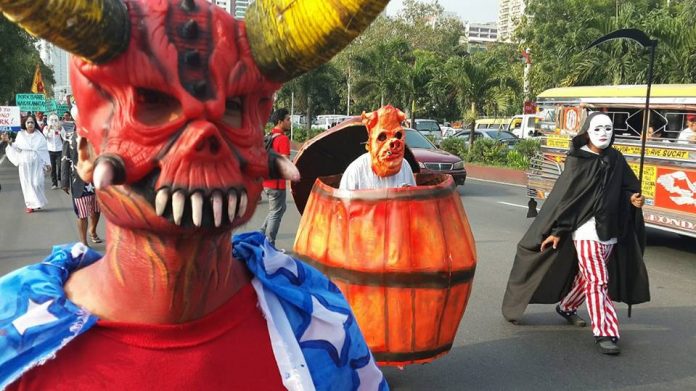YOU wouldn’t think that the Vatican—the seat of the Roman Catholic faith—would be one place where the contagion of corruption would rear its ugly face.
But the stark reality is that yes, the Holy See must also come to grips with the problem of corruption, prompting Pope Francis to promulgate early this month a new law to prevent its spread and control financial transactions.
The law, “Norms on the transparency, control and competition of public contracts of the Holy See and of the Vatican City State,” outlines new procedures for awarding public contracts to heighten oversight and accountability, and brings the Vatican in line with international anti-corruption laws.
Pope Francis said “the promotion of a concurrent and fair contribution of economic professionals, combined with transparency and control of contract award procedures, will allow a better management of the resources that the Holy See administers to achieve the ends of the Church.”
The legislation states that the Vatican and Holy See’s economic decisions should be ethical and made in accord with the social doctrine of the Church. It also calls for “economy, efficacy and efficiency,” and puts in place guidelines for medium and long-term planning and justification of financial expenditure.
For awarding public contracts, the legislation calls for transparent and impartial procedures, the integrity of documentation, and other measures against conflicts of interest, illicit competition agreements, and corruption.
The steps being taken by the Vatican and the Holy See to curb corruption sound all too familiar to Filipinos, as we don’t lack similar laws.
The problem in the Philippines is that unscrupulous public officials have elevated stealing from the national treasury to state-of-the-art even as they pay lip service to good governance.
In fact, not too long ago, the World Bank estimated that no less than one-fifth or 20 percent of the total annual national budget ends up in the pockets of the corrupt.
Last year, the Philippines got its lowest ranking in 7 years in the Corruption Perceptions Index (CPI) of Transparency International compared to 2018.
With a score of 34, the Philippines also ranked lower, falling 14 notches and placing 113th out of 180 countries. It was the country’s lowest ranking since 2012. In 2018, the country scored 36, and placed 99th among 180 countries.
Worldwide, Transparency International noted in its 2019 report that many nations “are showing little to no improvement in tackling corruption.”
“The current state of corruption speaks to a need for greater political integrity in many countries. To have any chance of curbing corruption, governments must strengthen checks and balances, limit the influence of big money in politics and ensure broad input in political decision-making,” the group recommended.
Transparency International noted that many countries “see economic openness as a way forward,” but many governments across the region “continue to restrict participation in public affairs, silence dissenting voices and keep decision-making out of public scrutiny.”
These findings underscore the need for Philippine authorities to seriously implement anti-corruption laws as inaction consigns the country’s disadvantaged and marginalized sectors to never-ending poverty.
What’s even more disturbing is that, amid the rising incidence of COVID-19 cases in the Philippines, corrupt public officials in the health sector have been reported as having purchased overpriced test kits and personal protective equipment for front-liners.
Meanwhile, charges are being readied against some local officials in various parts of the country for anomalies in the distribution of cash assistance to poor and marginalized families under the national government’s social amelioration program for those adversely affected by the public health crisis. Those to be charged include village officials who gave cash assistance to the undeserving and the unqualified, or handed out only part of the cash assistance to beneficiaries and keeping the rest in their own pockets.
What corruption does is to divert government funds away from vital infrastructure projects and vital social services such as education and health. The end result is that the poor are unable to improve their standards of living because they cannot get adequate education or access free or affordable healthcare, thus perpetuating intergenerational poverty. This has got to stop.
Ernesto M. Hilario writes on political and social justice issues for various publications in the Philippines. The views and opinions expressed in this article are those of the author and do not necessarily reflect the official editorial position of LiCAS.news.









